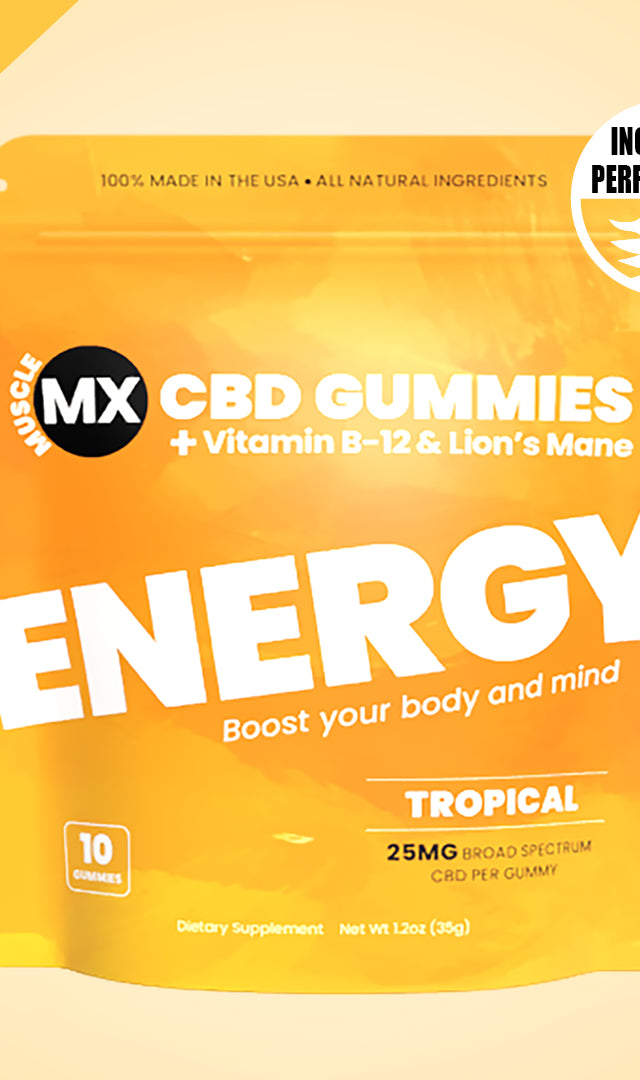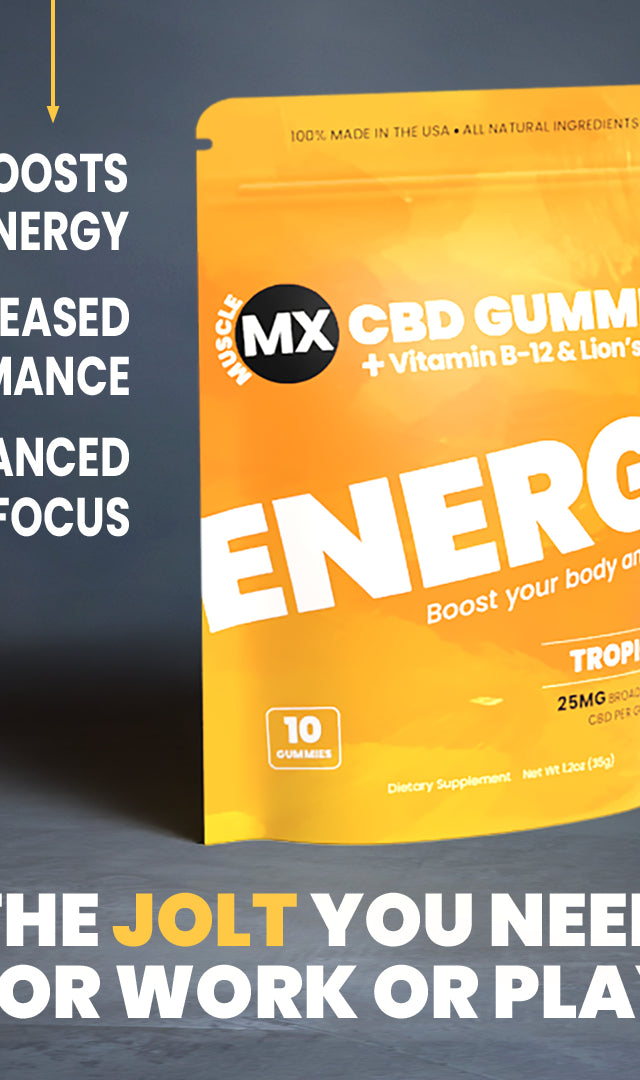The Truth About CoQ10 Benefits: From Energy Boost to Heart Health
Have you ever wondered why your energy levels seem to dip as you get older? Your body's natural CoQ10 levels may hold part of the answer. By age 60, these levels can be significantly lower than when you were younger, and this decline has caught the attention of researchers exploring how CoQ10 benefits everything from cellular energy to heart health.
CoQ10, or Coenzyme Q10, is a naturally occurring compound found throughout your body. You'll find the highest concentrations in your heart, liver, kidneys, and pancreas — organs that work hard and need substantial energy to function properly. This compound plays a crucial role in generating energy by helping produce adenosine triphosphate (ATP), which powers virtually all cellular functions.
So, what makes CoQ10 so important for your health? Studies show it can help improve symptoms and reduce the risk of heart-related complications. A 2013 meta-analysis involving 420 participants found that taking 300 mg of CoQ10 daily improved heart function and reduced mortality in heart failure patients. What's more, recent research indicates CoQ10 can be beneficial for migraine prevention, offering hope for those seeking relief without significant side effects.
Low CoQ10 levels have been associated with several conditions, including cancer, type 2 diabetes, and neurodegenerative disorders. However, promising research suggests that CoQ10 may help lower cholesterol in people with diabetes and might even slow the progression of Alzheimer's disease.
Understanding CoQ10 and its potential benefits is the first step toward exploring whether this compound could support your wellness journey. Let's learn more about this fascinating substance, how it works in your body, and the various ways it might help you maintain better health as you age.
What Is CoQ10 and How Does It Work?
Coenzyme Q10, commonly called CoQ10, is a fat-soluble, vitamin-like molecule naturally present in every cell membrane throughout your body. What makes CoQ10 unique is that unlike vitamins, your body can actually produce it on its own through a complex biochemical process called the mevalonate pathway.
Think of CoQ10 as your body's internal energy helper — it's working behind the scenes in every cell to keep things running smoothly.
CoQ10's Role in Energy Production
Remember how we mentioned that CoQ10 is crucial for energy? Here's how it works. Within your mitochondria — the tiny powerhouses inside cells — CoQ10 shuttles electrons between protein complexes in the respiratory chain. This process is essential for creating adenosine triphosphate (ATP), the primary energy currency that powers virtually all cellular functions.
To put it simply, CoQ10 acts as an electron carrier from complexes I and II to complex III in the mitochondrial electron transport chain. Without adequate CoQ10, this energy production process becomes inefficient, particularly affecting organs with high energy demands.
This is why understanding CoQ10 is so important — when your levels drop, your body's ability to produce energy at the cellular level can be compromised.
Ubiquinone vs. Ubiquinol: What's the Difference?
CoQ10 exists in your body in two main forms that continuously convert back and forth. Ubiquinone is the fully oxidized form, while ubiquinol is the fully reduced form.
The primary distinction lies in their chemical structure — ubiquinol contains two extra electrons and hydrogen atoms. This difference is significant because ubiquinol functions as a powerful antioxidant, protecting cell membranes from oxidative damage.
Although some suggest ubiquinol has better absorption, both forms are bioactive and important for health. Your body continuously converts between these forms based on your cellular needs.
Where CoQ10 Is Found in the Body
Throughout your body, CoQ10 concentrations vary by tissue. The highest levels exist in organs with substantial energy requirements — primarily the heart, liver, kidneys, and muscles.
Specifically, CoQ10 levels measure approximately 114 μg/g in heart tissue, 66.5 μg/g in kidney tissue, and 54.9 μg/g in liver tissue. About half of your body's CoQ10 resides within mitochondrial membranes.
The total body content of CoQ10 ranges from only 500-1500 mg. What's concerning is that these levels naturally decline as you age, potentially affecting energy production and antioxidant protection in older adults.
This natural decline helps explain why CoQ10 supplementation becomes increasingly relevant as we get older.
What Are the Key Benefits of CoQ10?
Research continues to reveal the impressive ways CoQ10 can support your health, extending far beyond its basic role in energy production. Clinical studies demonstrate its effectiveness in addressing various health conditions through its dual functions as an energy facilitator and powerful antioxidant.
Heart Health and Blood Pressure Support
CoQ10 shows promising effects for cardiovascular health. According to 2022 ACC/AHA/HFSA guidelines, CoQ10 supplementation effectively reduced vascular mortality, all-cause mortality, and hospital stays for heart failure patients at the two-year mark. Furthermore, systematic reviews indicate that supplementation improves symptom reduction and decreases major adverse cardiovascular events in patients with moderate-to-severe heart failure.
For blood pressure management, the results are encouraging. A recent meta-analysis found that CoQ10 supplementation (100-200 mg/day) significantly reduced systolic blood pressure by 4.77 mmHg in patients with cardiometabolic diseases. Notably, a U-shaped dose-response relationship was observed, with doses between 100-200 mg daily providing the greatest benefits.
Migraine Prevention and Brain Function
If you're someone who struggles with migraines, CoQ10 shows significant promise. Multiple studies demonstrate that CoQ10 supplementation reduces both duration and frequency of migraine attacks compared to control groups. Clinical trials show CoQ10 decreased headache frequency by 1.52 times per month and duration by 0.19 hours per month.
One study found that taking 400 mg/day of CoQ10 reduced migraine frequency by 56.7% compared to 41.9% in the placebo group. Another significant finding showed CoQ10 supplementation decreased the number of days with migraine-related nausea.
Improved Fertility in Men and Women
For men experiencing fertility challenges, CoQ10 supplementation shows considerable benefits. Studies report significantly higher total sperm counts, improved total and progressive motility, and increased normally formed sperm in men taking CoQ10. Additionally, research demonstrates higher serum testosterone and inhibin B levels following supplementation.
Women may also benefit from CoQ10, particularly regarding egg quality. Research indicates that CoQ10 helps protect eggs from oxidative damage, which becomes increasingly important as women age and CoQ10 production naturally declines.
Support for Diabetes and Metabolic Health
CoQ10 offers multiple benefits for diabetic patients. Meta-analysis reveals that supplementation significantly reduces fasting glucose levels by 5.22 mg/dl and decreases HbA1c by 0.12%. Insulin sensitivity also improves, with studies showing reduced fasting insulin by 1.32 μIU/ml and decreased HOMA-IR by 0.69.
Beyond blood sugar control, CoQ10 supplementation lowers total cholesterol and LDL levels in diabetic patients. These benefits appear related to CoQ10's ability to reduce oxidative stress and improve endothelial health.
Potential Role in Cancer Prevention
While research is still developing, early studies suggest potential anticancer properties of CoQ10. Low plasma CoQ10 was significantly associated with increased lung cancer risk, particularly among current smokers. This association was stronger in cases diagnosed within one year of blood sampling.
Several clinical trials have explored CoQ10's effects on various cancers. In breast cancer patients, supplementation reduced levels of tumor markers and inflammatory markers. Nevertheless, more research is needed to fully understand CoQ10's role in cancer prevention and treatment.
Skin and Lung Health Benefits
CoQ10's antioxidant properties make it valuable for skin health. Topical application has been shown to reduce the depth of wrinkles and decrease cytokine production by keratinocytes, which reduces matrix metalloproteinases and associated skin aging.
For lung health, CoQ10 supplementation has demonstrated beneficial effects in chronic obstructive pulmonary disease (COPD) patients. Studies show improvements in exercise capacity, with one trial reporting significant increases in 6-minute walk test distances (51 ± 69 vs. 15 ± 91 meters) compared to placebo.
Muscle Performance and Fatigue Reduction
CoQ10 effectively reduces fatigue symptoms according to meta-analyses of randomized controlled trials. One analysis of 13 trials involving 1,126 participants found statistically significant reductions in fatigue scores with CoQ10 supplementation compared to placebo. Both daily dose and treatment duration correlated with greater fatigue reduction.
For athletes, CoQ10 supplementation (30–300 mg) potentiates plasma antioxidant activity and anaerobic performance while reducing markers of oxidative stress and liver damage. These benefits extend to decreased muscular fatigue through reduced inflammatory response and muscle damage markers.
Statin-Induced Muscle Pain Relief
Many statin users experience muscle-related side effects that can be concerning. Research shows CoQ10 supplementation significantly ameliorates statin-associated muscle symptoms including pain, weakness, cramps, and tiredness. In one study, supplementation with 50 mg twice daily reduced muscle pain and improved interference with daily activities by 38%.
Another clinical trial demonstrated that CoQ10 supplementation decreased statin-related muscle symptoms in 75% of patients. This benefit occurs regardless of CoQ10 dosage (100–600 mg/day) or supplementation duration (30 days to 3 months).
Understanding these potential benefits is important to make informed decisions about whether CoQ10 supplementation might be right for you. Remember, while these studies show promising results, individual responses can vary, and it's always wise to consult with a healthcare professional before starting any new supplement regimen.
How to Take CoQ10: Dosage, Forms, and Absorption
Taking CoQ10 properly can make all the difference in how your body uses this powerful compound. The right dosage, timing, and formulation significantly impact absorption and effectiveness.
Recommended Daily Dosages
Standard CoQ10 dosages range from 30 to 200 mg daily for general health, but therapeutic doses can reach up to 1,200 mg with excellent safety profiles. For specific health concerns, dosage requirements vary:
- Heart conditions: Up to 200-300 mg daily
- Statin-related muscle pain: 50-200 mg daily
- Migraine prevention: 300-400 mg daily
- Diabetes support: 100-300 mg daily
- Fertility enhancement: 200-600 mg daily for women; 200-300 mg for men
Best Time and Way to Take CoQ10
Since CoQ10 is fat-soluble, it's best absorbed when taken with meals containing fat. Taking it with your largest meal of the day enhances absorption through a longer digestive window. For optimal results, consider these approaches:
- Divide your daily dose into two smaller doses for steadier blood levels
- Take CoQ10 before 2 p.m. to prevent potential energy boosts from interfering with sleep
- Establish a consistent routine by taking it at the same time each day
Ubiquinol vs. Ubiquinone Supplements
CoQ10 supplements come in two forms: ubiquinone (oxidized) and ubiquinol (reduced). Despite claims about superior absorption of ubiquinol, the reality is more nuanced:
Studies show formulation matters more than form for absorption. Both forms continuously convert back and forth in your body. Well-formulated ubiquinone supplements can actually provide better absorption than ubiquinol. Ubiquinol may offer some advantages for adults over 40, whose ability to convert between forms diminishes.
Tips to Improve Absorption
Remember, maximizing CoQ10 absorption requires attention to formulation and timing:
Choose oil-based soft gel capsules rather than powder formulations. Look for supplements containing oils like rice bran, sunflower, or olive oil. Consider formulations with black pepper extract (piperine), which can increase absorption by approximately 30%. Supplements containing vitamin C may have longer shelf life and better absorption.
CoQ10 in Food vs. Supplements
The typical dietary intake of CoQ10 is only 3-6 mg per day, far below therapeutic dosages. Food sources include oily fish (salmon, mackerel), organ meats, whole grains, and nuts. However, supplements provide significantly higher amounts than food sources. For therapeutic benefits, supplementation is typically necessary as food alone rarely provides sufficient quantities.
Understanding these absorption principles can help you get the most from your CoQ10 supplementation and support your overall wellness goals.
What Are the Safety Considerations for CoQ10?
CoQ10 supplements are remarkably well-tolerated by most people, with excellent safety profiles. Clinical studies show CoQ10 can be safely used at doses up to 1,200 mg per day without serious adverse effects .
Common Side Effects You Might Experience
When side effects do occur, they're generally mild and short-lived. The most common issues include:
- Digestive discomfort: stomach upset, nausea, vomiting, diarrhea, and loss of appetite
- Central nervous system effects: dizziness, insomnia (especially at doses of 100 mg/day or higher), headache, and irritability
- Skin-related reactions: rash and itching
Remember, dividing your daily dose into smaller amounts taken two or three times daily can help reduce these side effects .
Who Should Exercise Caution With CoQ10
Despite its overall safety, certain individuals should take extra care:
Those with liver or kidney disease should consult healthcare providers before supplementing . Diabetic patients need careful monitoring due to CoQ10's potential to affect blood sugar levels . People taking chemotherapy drugs should discuss supplementation with their oncologist first, as research on interactions remains limited .
Medication Interactions to Consider
The primary medication concern involves warfarin (Coumadin), a blood-thinning drug. Some case reports suggest CoQ10 may decrease warfarin's effectiveness by potentially increasing blood clotting risk . This could require warfarin dosage adjustments to maintain proper anticoagulation levels.
However, a prospective controlled trial of 24 stable patients taking both warfarin and 100 mg of CoQ10 found no significant changes in prothrombin time or INR levels over four weeks . This shows the importance of working with your healthcare provider to monitor any potential interactions.
Pregnancy and Breastfeeding Considerations
Currently, insufficient data exists regarding CoQ10 safety during pregnancy and breastfeeding. The consensus among healthcare providers is that CoQ10 is "possibly safe" when taken appropriately during pregnancy , with one study showing it has been used safely when taken twice daily starting at 20 weeks until delivery.
If you're pregnant or breastfeeding, it's essential to consult your healthcare provider before starting any CoQ10 regimen . Your wellness journey is uniquely yours, and professional guidance can help ensure you make the best choices for both you and your baby.
The Bottom Line
CoQ10 represents a remarkable compound with benefits that extend well beyond basic energy production. This naturally occurring substance plays a crucial role in cellular health, particularly for organs with high energy demands like your heart, liver, and kidneys.
Remember, your body's natural CoQ10 levels decline with age, making supplementation increasingly beneficial as you grow older. The research clearly supports CoQ10's effectiveness for heart health, reducing migraine frequency, improving fertility, supporting metabolic health, and alleviating statin-related muscle pain.
Taking CoQ10 correctly can make all the difference in your results. Fat-soluble formulations, appropriate timing with meals, and choosing quality supplements significantly enhance absorption. While ubiquinol is often marketed as superior, both forms work effectively when properly formulated.
CoQ10 generally proves safe even at higher dosages, though mild side effects can occasionally occur. Certain individuals—especially those taking blood-thinning medications or undergoing chemotherapy—should consult healthcare providers before starting supplementation.
The science behind CoQ10 continues to evolve, yet current evidence points to its value as part of a wellness strategy. Whether you seek cardiovascular support, migraine relief, or protection against age-related decline, CoQ10 offers promising benefits with minimal risks.
Understanding these benefits and safety considerations empowers you to make informed decisions about your health. Your wellness journey is uniquely yours, and CoQ10 could be a valuable addition to support your goals as you age and maintain optimal cellular function.
Key Takeaways
CoQ10 is a powerful compound that naturally declines with age, making supplementation increasingly valuable for maintaining cellular energy and overall health.
• CoQ10 supports heart health by reducing mortality and hospital stays in heart failure patients while potentially lowering blood pressure by 4.77 mmHg • Taking 300-400mg daily can reduce migraine frequency by up to 56.7% and improve duration compared to placebo groups • For optimal absorption, take CoQ10 with fatty meals in divided doses, choosing oil-based soft gel capsules over powder forms • CoQ10 is remarkably safe at doses up to 1,200mg daily, though those on warfarin should consult healthcare providers first • Beyond energy production, CoQ10 improves fertility, reduces statin-related muscle pain, and supports metabolic health in diabetic patients
The research consistently demonstrates that CoQ10 supplementation offers significant therapeutic benefits with minimal side effects, making it a valuable addition to health maintenance strategies, particularly for cardiovascular support and age-related cellular decline.
FAQs
Q1. What are the daily benefits of taking CoQ10? Taking CoQ10 daily can increase energy levels, protect cells from oxidative damage, and potentially improve heart health. It acts as a powerful antioxidant, reducing oxidative stress in the body and supporting overall cellular function.
Q2. How much CoQ10 is recommended for heart health? For heart health, the recommended dosage of CoQ10 typically ranges from 60 to 300 mg per day. This amount may help reduce risk factors for heart disease, such as lowering levels of "bad" LDL cholesterol, especially in individuals with heart failure or angina.
Q3. How long does it take to notice the effects of CoQ10 supplementation? The effects of CoQ10 supplementation can often be noticed within 4 to 8 weeks, particularly in terms of improved energy and exercise performance. Studies have shown that taking 60-100 mg daily for this duration can enhance aerobic power, anaerobic threshold, and recovery after exercise in both athletes and untrained individuals.
Q4. Is CoQ10 recommended by medical professionals for heart conditions? Many cardiologists do recommend CoQ10 supplements, especially for patients with heart conditions. This is because CoQ10 production in the body naturally decreases with age, and supplementation may help support heart health and function.
Q5. What is the best way to take CoQ10 for optimal absorption? For optimal absorption, it's best to take CoQ10 with meals that contain fat, as it is a fat-soluble compound. Using oil-based soft gel capsules rather than powder formulations can also improve absorption. Additionally, dividing the daily dose into two smaller doses and taking them with your largest meals can help maintain steady blood levels throughout the day.
References
https://coopercomplete.com/blog/health-benefits-of-coq10-supplements/?srsltid=AfmBOooBbI6gIjjBepz6oigTI5OlAHGYQhuA1I1BIMLDqYGs4bXJJ4QE
https://www.healthline.com/nutrition/coenzyme-q10
https://www.webmd.com/diet/supplement-guide-coenzymeq10-coq10
https://www.ncbi.nlm.nih.gov/books/NBK531491/
https://www.mayoclinic.org/drugs-supplements-coenzyme-q10/art-20362602



















































